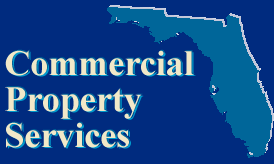|
PRESS
ARTICLES
Retailers
press tax fight
Big
chains scoring with claim they’ve lost millions because
counties use a flawed method to value in-store equipment
By Alina Matas
--------------------------------------------------------------------------------
Three of the nation’s largest retailers — Wal-Mart,
Kmart and Target — are taking on Florida’s county
property appraisers by challenging recent tax bills, in a
move that could change the way retailers statewide are taxed
in the future.
The
retailers allege that Broward and Palm Beach counties —
as well as several other Florida counties including Hernando
and Sarasota — are using a flawed method for assessing
the value of their tangible property, and thereby are not
accurately reflecting the market value of the property. Tangible
property includes furniture, fixtures and business equipment
inside stores.
At
stake is hundreds of thousands of dollars each retailer pays
yearly in tangible property taxes. If they win their legal
challenges in each county, their tangible property tax assessments
could be cut by as much as 50 percent. Wal-Mart won a similar
case last year in Hillsborough County, where it won a tax
refund of about $150,000.
The
issue “raises a red flag about how anybody is taxed in
any county,” says Sheila Anderson, a commercial property
consultant in Miami who is active in various government watchdog
groups.
In
addition to Wal-mart, Kmart has sued in Broward and Palm Beach,
and Target has sued in Palm Beach County. Similar suits are
expected in Miami-Dade, where the three retailers are challenging
their assessed values for 1999 through the county’s value
adjustment board.
If
other retailers follow the lead of the big three, as some
experts expect, the impact on county revenues could be significant.
With
average tangible property assessments of about $1 million
per store and multiple stores in each county, these big-box
retailers are major contributors to county tax rolls. Wal-Mart,
for example, in 1998 paid $214,530 in tangibles taxes in Broward
County on its total assessed value of $9.79 million. In Palm
Beach County, it paid $139,053 on an assessed value of $6.6
million. But those payments are being contested.
Wal-Mart
has sued in 17 counties throughout the state during the last
three years. Its fight began after three counties in Central
Florida rejected the retailer’s 1996 returns, declining
to accept the company’s figures on what its personal
property had cost. Those counties then produced their own
assessments of what the items were worth. Wal-Mart is currently
suing Broward and Palm Beach counties over 1998 assessments.
At
issue is whether the value of the tangible property should
be based on what the property would cost if acquired brand
new — with some depreciation allowed — or on what
the retailer could sell the equipment for in the open market.
The state and most local government use the first method,
which yields a higher value. The retailers want to use the
latter.
“There’s
been no effort to see if the results the [government’s]
method is producing are an accurate reflection of the market,”
said Robert Kelley, an attorney with the Tampa office of Holland
& Knight, who represents Wal-Mart, Kmart and Target. “What
we’re doing is challenging that practice and trying to
determine whether more is required under the law.”
The
current methodology assesses taxable value by taking the original
cost of the items, as provided by the retailers, and subtracting
from that the item’s depreciation — an amount determined
with age tables supplied to county appraisers by the state
Department of Revenue, also a defendant in the suits.
The
retailers say that methodology has two general flaws:
•
The values it produces haven’t been corroborated by market
data.
•
It allows double taxation because the sales taxes the retailer
paid when they originally bought the property are included
in the original cost of the property.
Property
appraisers and the state revenue department stand by the methodology,
saying it is the only reasonable way to assign a value to
tangible property. They say market data — which means
amounts paid in recent sales of business equipment similar
to that being assessed — isn’t an accurate method
because those sales are mainly made at the time when retailers
decide to renovate their stores and sell old equipment. Using
that data, therefore, would amount to valuing newer items
at salvage prices.
“These
companies are now coming up with this salvage values theory,
which we believe are not reflective of the true value of their
personal tangible property,” said Jay R. Jacknin, a West
Palm Beach attorney representing Palm Beach County’s
property appraiser.
Said
revenue department spokesman Dave Bruns: “We’re
confident that the methodology the staff has put forward will
meet the statutes test.”
Kelley,
the retailers’ attorney, said there is a market for newer
items and the revenue department should make an effort to
gather sales data and include them in its methodology.
“What
[the retailers] want to accomplish is that the Department
of Revenue will make some changes, so that in future years
they will be satisfied they have made an effort to provide
a fair assessment,” Kelley said.
The
courts so far have rendered decisions in three Wal-Mart cases
elsewhere in the state. A Hillsborough circuit judge this
past July reduced the 1997 tax assessment for Wal-Mart stores
from $10.1 million to about $5.5 million. The judge ruled
that the method of cost-minus-depreciation was acceptable,
but that the revenue department tables used to determine depreciation
were outdated and should be regularly checked against market
data.
In
Hernando and Sarasota counties, however, circuit judges have
recently ruled in favor of the property appraiser. Wal-Mart
is appealing those cases.
Some
say the matter won’t go beyond Wal-Mart’s and the
other retailers.
“I
believe that all of these lawsuits are nothing more than Wal-Mart
looking at their tax bill and saying any way we can legitimately
reduce our tax bill, we’re going to try,” said Wood,
the attorney for Broward County.
But
Kelley and other industry professionals disagree. They say
suits from other companies may follow if the retailers prevail
on the issue, as they may be encouraged by substantial legal
precedents in their favor.
Further,
system critics say the issues are relevant to all property
valuations conducted under guidelines and audits from the
Department of Revenue.
Says
Anderson, the commercial property consultant in Miami, “It
takes a Wal-Mart to sue, but the big picture is about whether
[the revenue department] is doing its job of implementing
uniform and fair standards for all taxpayers.”
Web Published Monday, January 10, 2000
Published in Daily Business Review on: Monday, January 10,
2000
|

